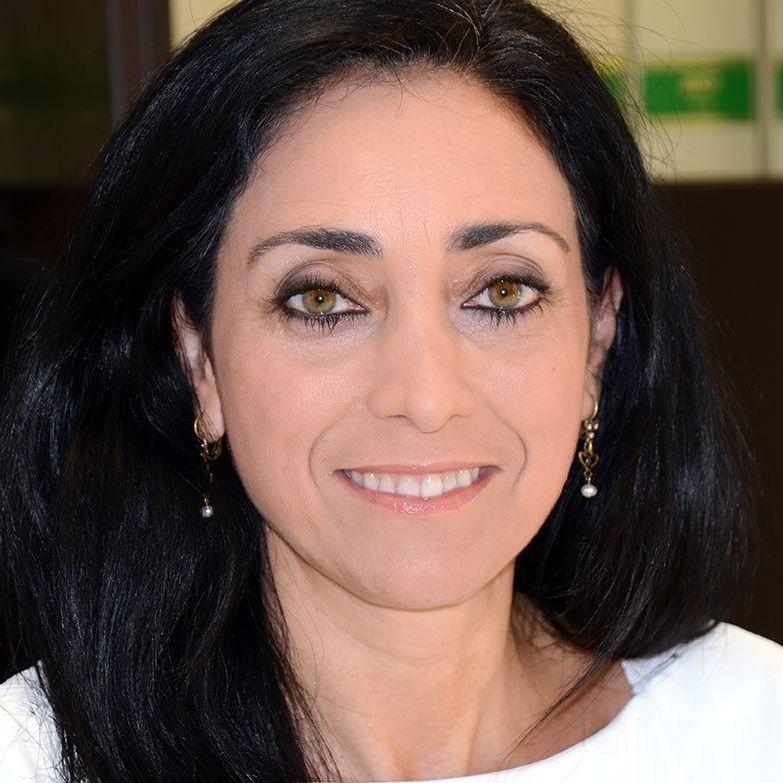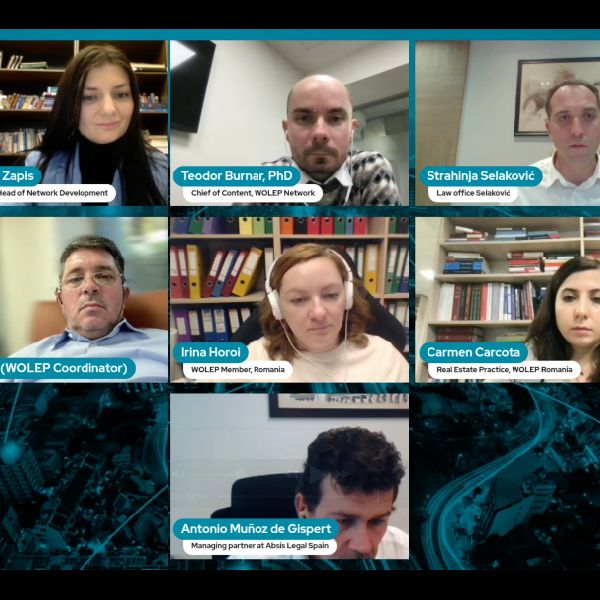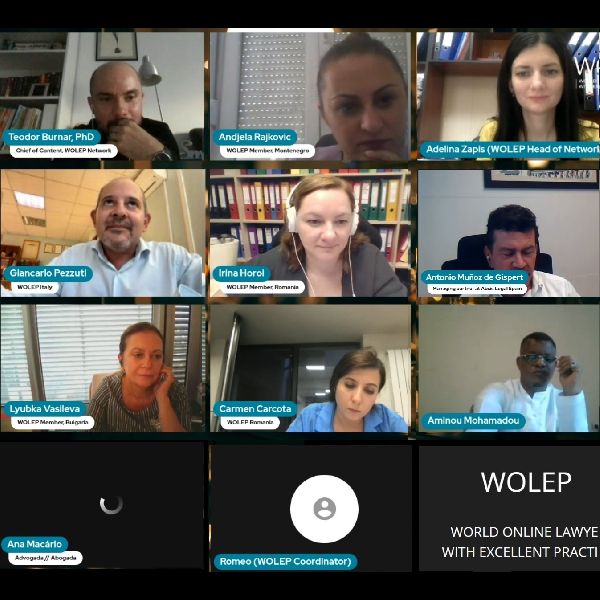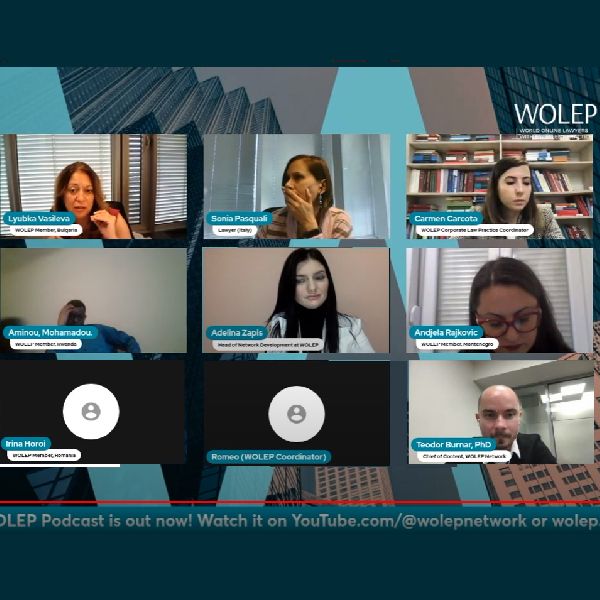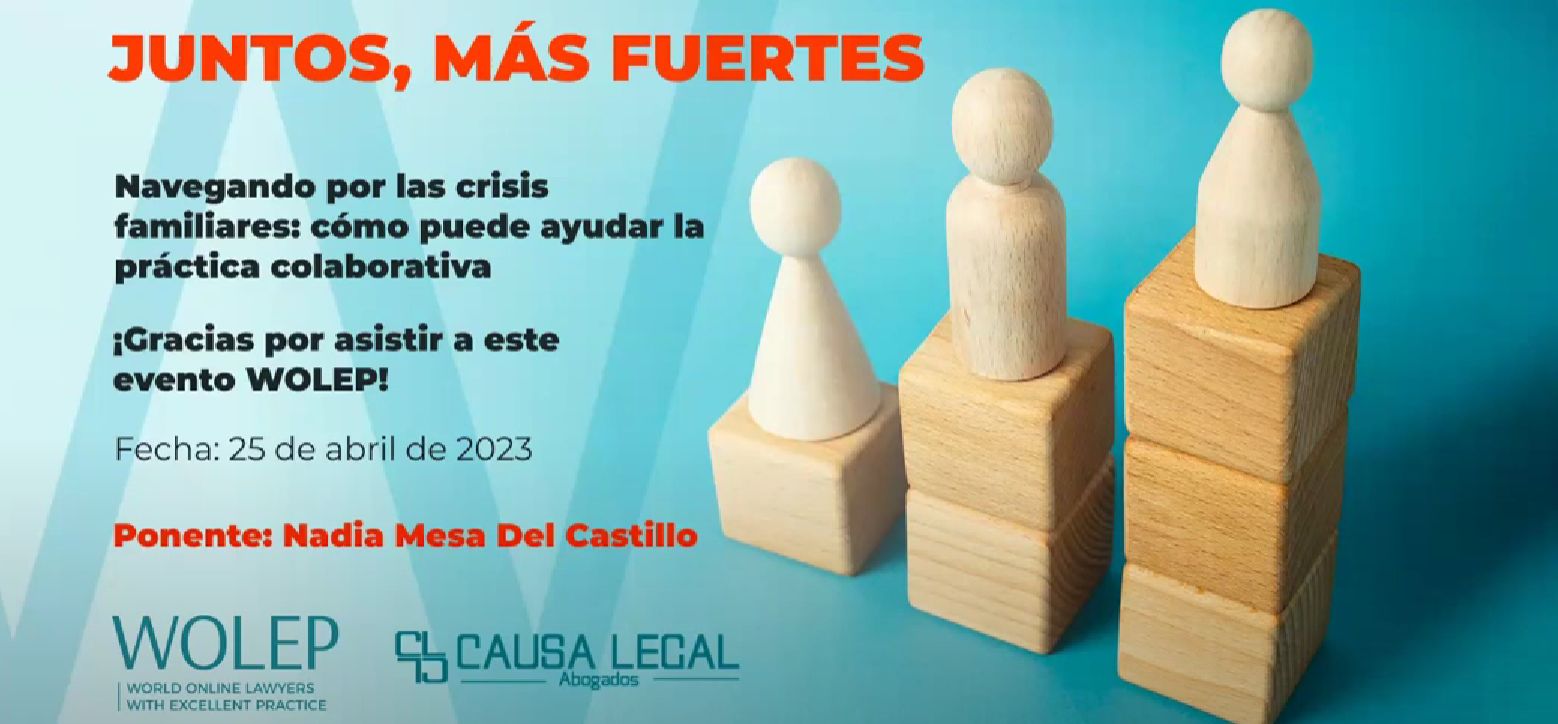
|
03.05.2023 | Teodor Burnar, Adelina Zapis
|




|
Discovering Collaborative Practice: Ms. Nadia Mesa del Castillo's Presentation at WOLEP Webinars Sparks Interest Among Attendees
Our keynote speaker for the occasion, Ms. Nadia Mesa del Castillo, is a lawyer based in the vibrant capital of Spain, Madrid, with over 25 years of experience in the field. She serves as Managing Partner of law firm Causa Legal Abogados and specializes in Civil Law, with a particular focus on Family Law and succession law. As a mediator and member of several Collaborative Practice associations around the world, including the Spanish Association of Family Lawyers, Collaborative Family Lawyers, and the Basque Collaborative Law Association, our WOLEP member from Spain brought a wealth of expertise to the webinar.
The webinar itself was held in Spanish, with a mainly Spanish-speaking audience from around the world. Among the attendees were WOLEP members from Spain including Mr. Juan Evangelista Segura Aguiló, Mr. Jorge Santos, and Ms. Elena Georgiana Manole, as well as South American members such as Ms. Katerine Hernandez (Colombia) and Mr. Enrique Damián Bes (Argentina). We were also pleased to have Mr. Fokalbo Cogito join us from Chad.
Collaborative Law: A revolutionary new approach to legal practice
During Ms. Mesa del Castillo's presentation on "Family Crises: Collaborative Law" (”Crisis Familiares: Derecho Colaborativo”), the family law expert emphasized that the breakup of a family can be one of the most stressful times in an individual's life, generating many emotions that are hard to handle. This can prevent people from making the right decisions.
Ms. Mesa del Castillo explained that the traditional way of solving a family conflict is by bringing the matter to court. However, litigation often results in a situation where one party wins while the other loses, with dire consequences for the children involved in the marriage.
The WOLEP expert contended that this realization has led to the emergence of MASC - Alternative or adequate methods of conflict resolution. Collaborative Law is the embodiment of a new paradigm in law that aims to deliver a win-win situation. "That may sound counterintuitive in our culture and society, but the truth is that, through this method, we can all win," said Ms. Mesa del Castillo.
Ms. Mesa del Castillo described the process of Collaborative Law as a negotiation where the parties played a crucial role in making decisions about their lives. "The parties are the ones who have to sit down and talk about their lives and make their own decisions. Then there are lawyer-client, lawyer-lawyer, and joint meetings (lawyers and clients)."
The WOLEP specialist in Collaborative Law explained how the collaborative process takes place. "I meet with my client to study their needs and identify the important points that need to be addressed in all meetings. Afterwards, the other collaborative lawyer and I prepare for the meetings. We identify the issues our clients are facing and determine the best way to address them. Then, the two lawyers and two clients meet in structured meetings with a method and proceed with the aim of reaching an agreement."
Ms. Mesa del Castillo then explained that the Harvard Negotiation, which was developed decades ago at Harvard University, plays a central role in Collaborative Practice. It provides a structure for mediation that is widely used in Collaborative Law.
Ms. Mesa del Castillo emphasized the importance of differentiating between the client's position and their interest in Collaborative Law. "The position is the client's proposed solution that they believe is the only way to satisfy their need. It can be achieved only in this specific way. Interest, on the other hand, is the need that the client wishes to meet through the stated position. It can be satisfied in different ways." It is important to identify the client's interest, as it can lead to more creative and flexible solutions that satisfy both parties.
A short history of Collaborative Law
As part of her presentation, the Madrid-based lawyer gave a brief history of Collaborative Law around the world. Developed in the 1980s in the United States by Stu Webb, a family lawyer, it is based on mediation principles and quickly gained popularity. Many countries around the world, including Spain, have adopted the Collaborative Practice method, resulting in an increasing number of professional associations acknowledging its growing reputation.
In Spain, to become a collaborative lawyer, one must complete two modules of the Harvard model and a Collaborative Law module. This May, Italy will host the Collaborative Law Congress.
The parable of the orange
In order to better illustrate the theoretical concepts of position and interest, the WOLEP expert from Spain used a parable: "Suppose we have two sisters, each desiring an entire orange. According to the old paradigm, one is bound to lose. If one gets it all, or they split it in half, neither one of them is satisfied. There is always a loser. However, by using the new paradigm, we investigate the true interest behind the positioning. The latter is 'I want the whole orange,' but what is each sister’s interest? We find out that one wants the whole orange to make juice, while the other wants it to bake a cake with the orange peel. By combining the interests of both sisters, one can peel the orange, and then the other can use the orange to squeeze it. Thus, we can satisfy the interest of both sisters."
Collaborative Law - characteristics and benefits
Ms. Mesa del Castillo also mentioned the main attributes of Collaborative Law, noting on a formal level the teamwork that is needed for a positive outcome, the negotiation of interests, the support provided by your lawyer, the avoidance of litigation, the collaboration of other professionals such as life coaches, psychologists, and communicators, the high success rate, the respectful and trustworthy environment, confidentiality, diligence, and the amiable nature of the agreement.
On a personal level, our Spanish member highlighted the fact that Collaborative Law is credited with reducing trauma in children, turning parties from victims to leading actors, empowering parties by allowing them to set the rhythm and giving them control, boosting trust and respect for the other party, providing children with a good example, improving communication, and rebuilding bridges.
But WOLEP's speaker also stressed that the benefits are not limited to clients but extend to lawyers as well: "In traditional law, lawyers are on their own. We fight alone, even though there are many of us in a law firm. Whereas in Collaborative Law, you're with the other lawyer who's a partner, and the mentality is, 'Let's collaborate. Let's find the best solution together.'"
Ms. Mesa del Castillo explained that while mediation and Collaborative Practice share similarities, there are technical differences between them. "It's true that both methods use the Harvard negotiation model. However, the mediator does not have to be a lawyer because they do not advise the parties. They are a neutral person, and the parties typically meet with the mediator alone, although sometimes they may be accompanied by their lawyer. In contrast, in Collaborative Law, each party has their own lawyer to represent their interests."
Nevertheless, there are certain cases when Collaborative Practice may not be advised. For example, when there is a significant power imbalance between the parties, when mental illness limits decision-making abilities, when there is a lack of goodwill, or in major criminal cases between parties. In such cases, other legal methods may be necessary to ensure fairness and justice.
The WOLEP expert concluded the webinar by expressing her confidence and enthusiasm for the benefits of Collaborative Practice. She highlighted its numerous advantages for couples, including greater control over their own futures, reduced confrontation, and minimized negative impact on children.
The Q&A session provided ample opportunities for valuable networking and professional exchange, and participants discussed the similarities between Collaborative Practice in Europe and South America. Ultimately, it was concluded that this method has a bright future, and as more lawyers embrace and popularize it among their clients, it is likely to become the preferred route for many people seeking a civil and mutually beneficial way of resolving disputes.
Please note that WOLEP members have free access to the PPT presentation made available by Ms. Mesa del Castillo and WOLEP.
You can watch the recording of the WOLEP Webinar featuring our expert Nadia Mesa del Castillo below:
Care to be a speaker at a WOLEP Webinar and showcase your expertise to your peers on a topic relevant to your professional practice? Register your account here: https://www.wolep.com/my_account/register-lawyer.php and contact the WOLEP team now!
Are you a legal eagle with a passion for collaboration? Join forces with other legal professionals and elevate your practice to the next level. Don't wait, sign up now to WOLEP and connect with like-minded lawyers today. Register your account here.
#Webinarii Wolep #Nadia Mesa del Castillo #webinar #WOLEP #ADR methods #law in Spain

